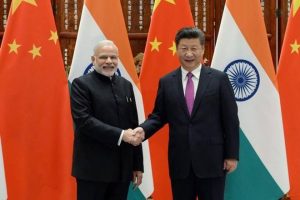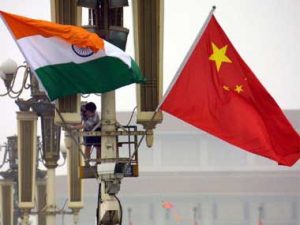 India’s ruling Bharatiya Janata Party (BJP)is shunning His Holiness the Dalai Lama and the Tibetan exile community by boycotting events organised by the Tibetans to celebrate His Holiness the Dalai Lama’s 60 years living in India. This is seen as a political move, as part of India’s attempts to foster relations with its neighbour China.
India’s ruling Bharatiya Janata Party (BJP)is shunning His Holiness the Dalai Lama and the Tibetan exile community by boycotting events organised by the Tibetans to celebrate His Holiness the Dalai Lama’s 60 years living in India. This is seen as a political move, as part of India’s attempts to foster relations with its neighbour China.
The Indian government has effectively cancelled two major public events organised to mark the beginning of the sixtieth year of the Dalai Lama’s exile in Indiaahead of Indian Prime Minister Narendra Modi’s visit to the Chinese capital city Beijing this summer. China always threatens sanctions against any country seen to publicly support the Dalai Lama and the Tibetan cause. The milestone in this case falls on March 31, the date the Dalai Lama arrived at Tawangin Arunachal Pradesh, the most northeastern state of India, in 1959 after a 15-day journey over the Himalayas.
The Central Tibetan Administration (CTA) had organised the two events in Delhi- a “Thank You,India”programme at Thyagaraj stadium and an inter-faith prayer at Gandhi Samadhi, scheduled for March 31 and April 1, and to be attended by His Holiness the Dalai Lama as well as a host of Indian government officials, including Minister of state Kiren Rijiju and veterans including Manmohan Singh and L K Advani, who have always shared a good relationship with His Holiness.
The events were cancelled in the wake of Foreign secretary Vijay Gokhale’s directive to senior state leaders and central government functionaries to “stay away” from events organised by the Tibetan Government-in-exile, saying it was a “sensitive time” for relations between India and China. The letter was sent on the eve of Modi’s February 22 visit to China. In addition, BJP leader Subramanian Swamy, speaking to the media, said that His Holiness should “stick to religious activities” and not indulge in political events as India accepts Tibet as part of China, in accordance with India’s treaties with Beijing.
 This move by the Ministry of External Affairs is seen as a demonstration of how the present Indian government has used His Holiness the Dalai Lama and the Tibetan population in exile as a way to manipulate India’s stance on China. It is seen as another move in an ongoing hostile relationship between the neighbours. In 2014-2017 relations between India and China were tense owing to several border incursions by China, and by China’s refusal to support India’s membership in the Nuclear suppliers group. During this period India issued strong, less-than-diplomatic statements towards Beijing and honoured the Dalai Lama,inviting him to major national events, as well as including Sikyong (leader of the CTA) Lobsang Sangay in Indian Prime Minister Modi’s swearing-in ceremony.
This move by the Ministry of External Affairs is seen as a demonstration of how the present Indian government has used His Holiness the Dalai Lama and the Tibetan population in exile as a way to manipulate India’s stance on China. It is seen as another move in an ongoing hostile relationship between the neighbours. In 2014-2017 relations between India and China were tense owing to several border incursions by China, and by China’s refusal to support India’s membership in the Nuclear suppliers group. During this period India issued strong, less-than-diplomatic statements towards Beijing and honoured the Dalai Lama,inviting him to major national events, as well as including Sikyong (leader of the CTA) Lobsang Sangay in Indian Prime Minister Modi’s swearing-in ceremony.
In order to signal their displeasure with Beijing in the midst of the border standoff at Doklamlast year, India gave permission for His Holiness the Dalai Lama to visit Tawang monastery for the first time since 2009. Later in 2017, Lobsang Sangay hoisted the Tibetan flag on the shores of the Pangong Tso lake in Ladakh, on the India-Tibet border. Both of these events infuriated Beijing.
Modi will be attending the Shangai Cooperation Organisation summit in Qingdao in China this June prompting speculation that this is another move by India to mend relations with Beijing.




 Print
Print Email
Email